Quickstart: Server Code
Learn how to run code in Anvil’s hosted Python backend
Anvil provides a server-side Python environment for your apps.
Follow this quickstart to write a server function and call it from the client.
Create an app
Log in to Anvil and click ‘New Blank App’. Choose the Material Design theme.
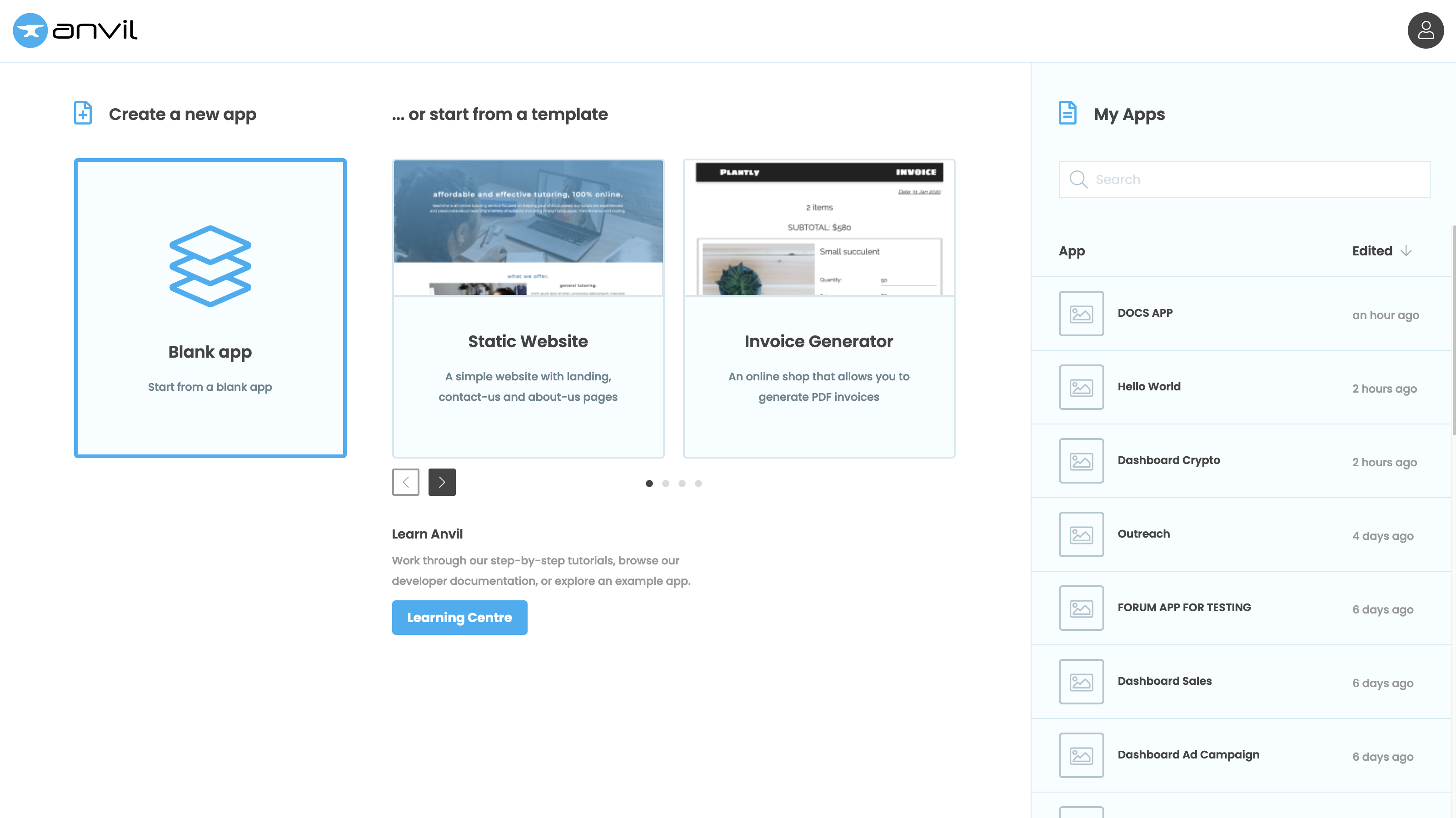
Add a Server Module
In the App Browser, click “+ Add Server Module” next to Server Code to add a new Server Module.
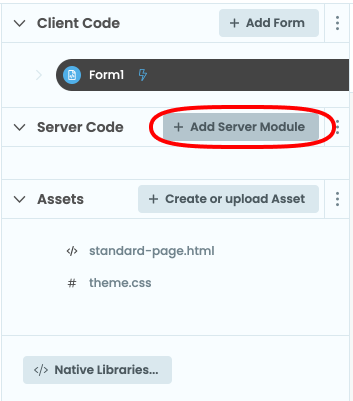
A new tab will open with a code editor. The orange line on the left margin of the code editor indicates that this code will run on the server.
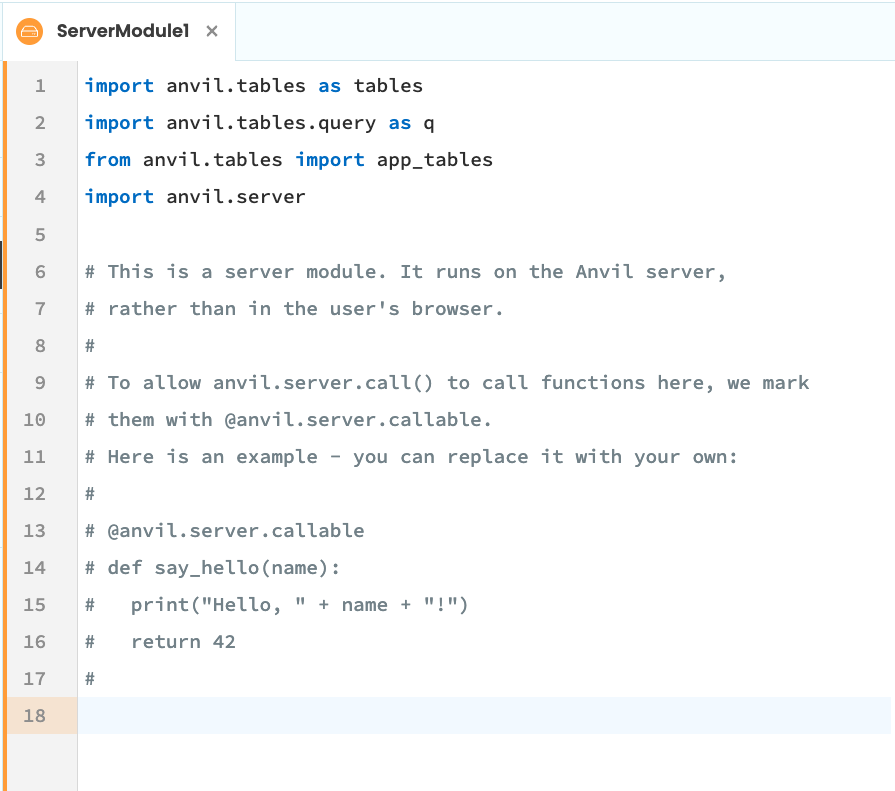
Write a server function
Write this function into the Server Module:
def say_hello(name):
print(f"Hello from the server, {name}")
return [1, 2, 3, 4]Make your function client-callable
Above your say_hello function, add @anvil.server.callable. The function now looks like this:
@anvil.server.callable
def say_hello(name):
print(f"Hello from the server, {name}")
return [1, 2, 3, 4]That makes the say_hello function callable from the client side.
Switch to the Code View for Form1
Under Forms in the App Browser, select Form1.
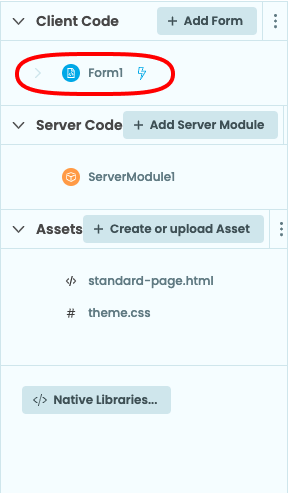
Click on the ‘Code’ tab to see the Python code for Form1.

Call your server function from the client
You will see a few lines of pre-written code. Your Form is represented as a class called Form1. It currently has
only one method, the __init__ method.
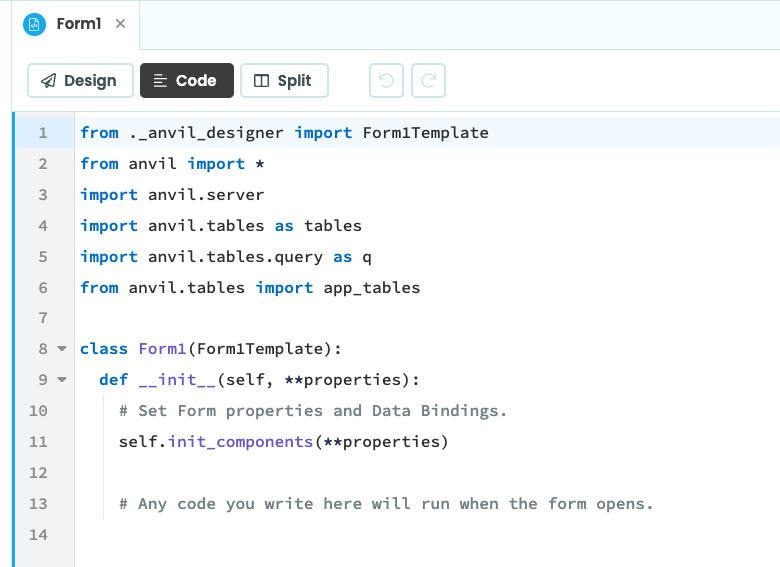
At the end of the __init__ method, write these lines:
return_value = anvil.server.call('say_hello', 'Anvil Developer')
print(f"The return value was {return_value}")Run your app
Now click the ‘Run’ button at the top of the screen.

The Output Panel should display these lines:
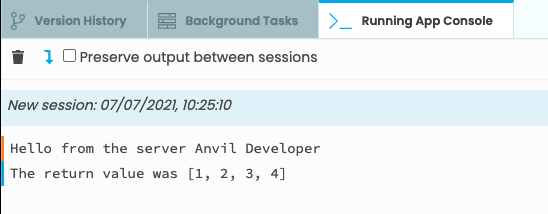
The output with the orange line next to it came from a Python process running in Anvil’s cloud cluster. The output
with the blue line next to it ran in your browser. You made the browser communicate with the server over the internet
by writing anvil.server.call('say_hello', 'Anvil Developer').
Copy the example app
Click on the button below to clone a finished version of this app into your account.
Next up
Want more depth on this subject?
Read more about server-side code in Anvil.
Want another quickstart?
Every quickstart is on the Quickstarts page.
Do you still have questions?
Our Community Forum is full of helpful information and Anvil experts.
